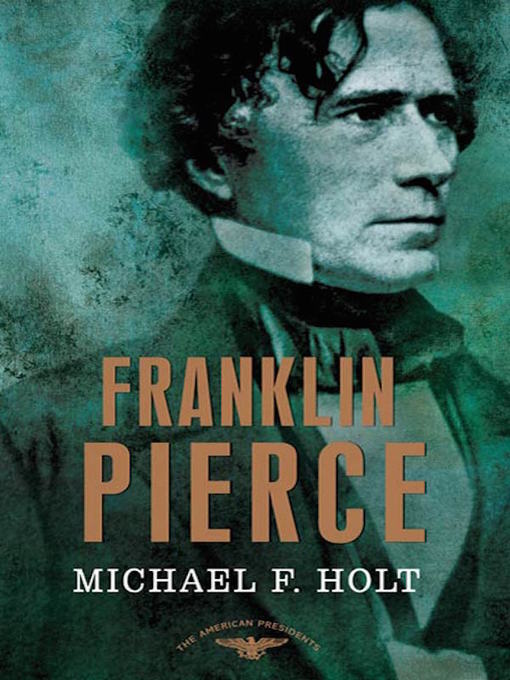
Franklin Pierce
The 14th President, 1853-1857
کتاب های مرتبط
- اطلاعات
- نقد و بررسی
- دیدگاه کاربران
نقد و بررسی

February 8, 2010
Like many historians, Holt considers Franklin Pierce’s administration (1853-1857) to be so inept that perhaps the greatest praise is that the succeeding administration, James Buchanan’s, was worse. Son of a prominent New Hampshire governor, Pierce (1804-1869) served in the Houseand Senate, resigning in 1842 but remaining leader of the Democrats in New Hampshire, where he remained extremely popular. This stood him in good stead when he was chosen in 1852 as a dark-horse presidential candidate by a deadlocked Democratic convention. He drubbed Winfield Scott in the presidential election to become the country’s 14th president. However, Pierce saw abolitionism as a threat to the Union, and his sympathy with Southern views helped lead the nation to civil war. Holt (The Rise and Fall of the American Whig Party
) argues that Pierce’s support of 1854’s Kansas-Nebraska Act helped trigger the expansion of slavery into the territories. This bitterly divided the party in the North, which denied Pierce renomination in 1856. Holt writes well, delivering a lively, opinionated account of a president who served in turbulent times and did not improve matters. This is an admirable addition to the already admirable American Presidents series.

February 1, 2010
Our 14th President at last gets his volume in this popular series for general readers. Drawing heavily from previous studies, such as Larry Gara's "The Presidency of Franklin Pierce", as well as primary sources and his own expertise on mid-19th century partisan politics, Holt (American history, Univ. of Virginia; "The Rise and Fall of the American Whig Party") creates a solid portrait of both man and President. Pierce, a New Englander known for his charm and good looks, traditionally ranks as one of our nation's worst leaders. Holt does not dispel or challenge any previous assessments but rather tries to explain the pre-Civil War President's actions. Holt's thesis is that Pierce's obsession with the Democratic Party and priority of party over country in the tumultuous 1850s in fact damaged his party and pushed the country more quickly toward war. VERDICT Recommended for high school and undergraduate readers and all libraries stocking this series.Leslie A. Lewis, Duquesnes Univ. Lib., Pittsburgh
Copyright 2010 Library Journal, LLC Used with permission.

March 1, 2010
Pierce deserves his low ranking by historians, but not, Holt argues, because he was a bad man or politician. Handsome and athletic, hed been a state representative at 24, a congressman at 29, a one-term U.S. senator at 34, and was New Hampshires leading Democrat when he became the first dark-horse candidate to secure the presidency in 1852. With congressional, state-legislative, and governorship majorities, the Democrats were riding high, and Pierce aimed to keep it that way. He chose cabinet members to represent the partys factions and crafted his domestic policy to quash divisive squabbles. But his eras big issue was slavery. He backed the Kansas-Nebraska Act, arguing that it nullified all previous limitations on the extension of slavery, and stood by during subsequent terrorism in Kansas on the grounds that the Constitution barred the president from intervening. Despite foreign-policy successes and a squeaky-clean administration, he wasnt nominated for a second term because Kansas-Nebraska, foreboding all too well what lay ahead, fractured his beloved party. Another excellent American Presidents series volume.(Reprinted with permission of Booklist, copyright 2010, American Library Association.)

























دیدگاه کاربران